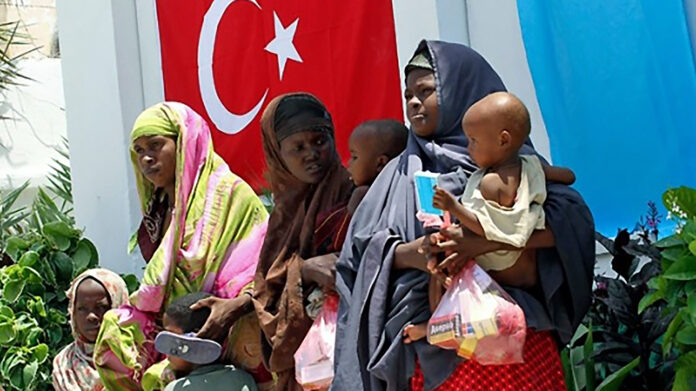Author: Serhat Orakçi
Affiliation: The Humanitarian and Social Research Center (INSAMER)
Organization/Publisher: Aljazeera Centre for Studies
Date/Place: January 9, 2022/Doha, Qatar
Type of Literature: Policy Analysis
Number of Pages: 9
Link: https://studies.aljazeera.net/en/analyses/rise-turkey-africa
Keywords: Diplomacy, Security Cooperation, Economic Forums
Brief:
Foreign relations and networks have shifted into more complex forms in Africa, with diverse actors entering the scene beside existing Western powers. These new actors include Russia, China, the United Arab Emirates (UAE) and many others who are after the rich potential Africa provides, making the continent a focus of new treaties and summits. The expansion of the African market, domestic economic activities and growth creates a complex arena with potential conflict of interests. Turkey enters in this context to become a notable actor on the African scene, by using diverse lanes in a multidimensional approach in various fields. These fields include diplomacy, with President Erdoğan going on recent diplomatic tours in 2021 to Angola, Togo and Nigeria, along with having become a strategic partner of the African Union since 2008. Economic relations saw growth as shown in various economic forums and an increase in trade volume from $3 Billion in 2003 to $23 billion in 2021; Turkey is also becoming a major energy-extraction and import partner with Algeria, Nigeria and Chad. Turkish-African relations has witnessed an increase in security and military cooperation via training programs and financial support against terrorism in the Sahel region and Somalia, culminating in a defence deal between the G5 Sahel and Turkey. Other fields of cooperation have included education, agriculture and health, showcasing the increasing Turkish presence. However, hurdles still pose a threat to Turkish aspirations which are dependent on domestic political and economic stability, and the presence of actors like Russia, China, France or the UAE may pose notable challenges as well.
Critical Commentary:
The author gives a general overview of increasing Turkish influence in Africa, giving general numbers, estimates and Turkish achievements in the continent. He also briefly mentions the complex international presence and how it may complicate relations between Turkey and other powers, but nothing is explored beyond the general image. Moreover, the author doesn’t attempt to explain the Turkish grand strategy in Africa, so any economic or diplomatic activities are not put into a greater perspective of the complex network the author mentions in the beginning of the article. When it comes to the military activities of Turkey, training programs and anti-terror financing are mentioned but nothing on harder military presence like the intervention in Libya. The author mentions the possible challenges that could be posed by other international actors but does not explore more than the possibility despite the presence of such challenges. The general image given in the analysis is an introduction to understanding Turkish presence in Africa but the lack of positioning where it exists makes the image incomplete.
By: Omar Fili, CIGA Research Assistant




